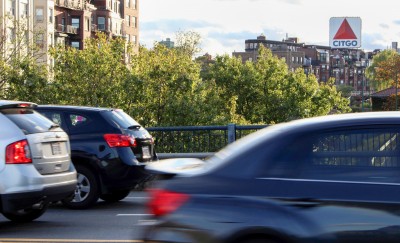
Massachusetts lost nearly $1 million in toll revenue by allowing employees and retirees of the Massachusetts Department of Transportation to pass through tollbooths without paying the fee, according to a Wednesday report from the Office of the Inspector General.
The report stated that more than $985,000 was lost in toll revenue between Nov. 1, 2009 and Aug. 31, 2015. MassDOT employees, retirees and employees of other public agencies were given non-revenue transponders and paid Massachusetts Turnpike Authority cards to pass through toll plazas without paying.
The report detailed that along with the known transponders given to employees and retirees, there were 85 devices not recorded by MassDOT. These alone accounted for $85,259 of the lost toll revenue. There were also 117 cases of seven transponders belonging to deceased persons being used after the date of their death.
Jack Meyers, senior investigator and spokesperson for the Office of the Inspector General, recommended the next steps MassDOT should take in response to these findings.
“Our office recommends that MassDOT consider eliminating the non-revenue transponders and the Mass. Turnpike Authority’s paid cards,” Meyers said. “They’ve eliminated some after we began the investigation, but there are some that they haven’t eliminated yet, and we highly recommend that they eliminate those as well.”
Meyers said MassDOT has responded to the investigation by eradicating the devices given to those who are not closely linked to the department.
“They have deactivated the non-revenue transponders associated to public agencies and private companies not affiliated with MassDOT,” Meyers said. “They say that right now, only 850 employees and retirees continue to have the devices.”
Jacquelyn Goddard, spokesperson for MassDOT, wrote in an email that the department has already addressed the issue and is working toward eliminating the devices.
“MassDOT has disciplined several employees found to have abused transponders assigned for work purposes and has taken steps to deactivate more than 75 transponders categorized as ‘missing’ because those transponders have not been used for a long time,” Goddard wrote.
Kamran Dadkhah, an economics professor at Northeastern University, discussed in an email how employees and retirees who share their perks with family and friends easily abuse these benefits.
“Decisions such as to exempt certain employees and retirees from paying tolls are made with good intentions. But invariably these kinds of policies are an invitation to abuse the system,” Dadkhah wrote. “… If the government wants to help its employees and retirees, it should estimate how much the average person spends on tolls and add that amount to everyone’s salary or retirement benefits.”
Dadkhah added that transponders do not benefit every employee in the same way.
“A second problem with this privilege is that it is an unequal benefit,” Dadkhah wrote. “Some employees and retirees seldom if ever travel on toll roads, while others travel frequently. One group gains close to nothing, and the other receives a lot.”
Several Boston residents gave their opinions on whether MassDOT employees should be given transponders or not.
Hetal Patel, 30, of the West End, said employees and retirees deserve the benefit of not paying the toll price.
“I don’t mind if employees or retirees are able to drive through without paying the toll,” she said. “It’s part of their job, so I think they should get perks and benefits of it.”
Lucy Drake, 25, of Brighton, acknowledged the forfeit of revenue but also agreed that being an employee warrants certain advantages.
“I think if they’re working for them, those are just perks of the job,” she said. “On the other hand, I guess that it is a lot of money, though, maybe even too much money, for the department to lose.”
Shalian Aponte, 38, of Fenway, said the money lost could have been used to fix the greater issues the transportation system faces.
“There are so many ways they could use that money, like repairs for the MBTA,” she said. “That money could be spent repairing our tracks so the lines aren’t delayed as often. I’m all for benefits and I certainly appreciate the employees, but it cuts into things that are more necessary.”
Kyler Sumter contributed to the reporting of this article.






















































































































